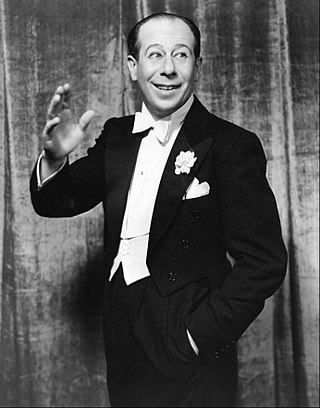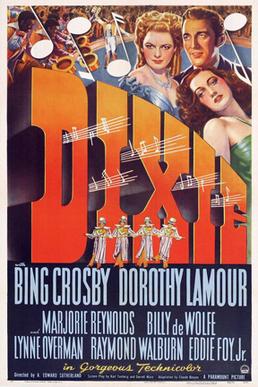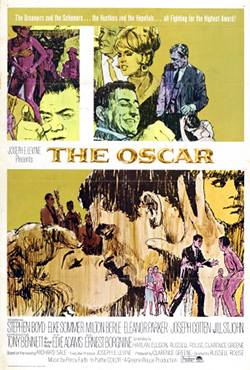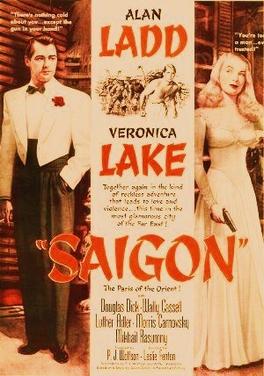
Milton Berle was an American actor and comedian. His career as an entertainer spanned over eight decades, first in silent films and on stage as a child actor, then in radio, movies and television. As the host of NBC's Texaco Star Theatre (1948–1953), he was the first major American television star and was known to millions of viewers as "Uncle Miltie" and "Mr. Television" during the first Golden Age of Television. He was honored with two stars on the Hollywood Walk of Fame for his work in both radio and TV.

Eldred Gregory Peck was an American actor and one of the most popular film stars from the 1940s to the 1970s. In 1999, the American Film Institute named Peck the 12th-greatest male star of Classic Hollywood Cinema.

Phil Silvers was an American entertainer and comedic actor, known as "The King of Chutzpah". His career as a professional entertainer spanned nearly 60 years. He achieved major popularity when he starred in The Phil Silvers Show, a 1950s sitcom set on a U.S. Army post in which he played Master Sergeant Ernest (Ernie) Bilko. He also starred in the films It's a Mad, Mad, Mad, Mad World (1963) and A Funny Thing Happened on the Way to the Forum (1966). He was a winner of two Primetime Emmy Awards for his work on The Phil Silvers Show and two Tony Awards for his performances in Top Banana and A Funny Thing Happened on the Way to the Forum. He also wrote the original lyrics to the jazz standard "Nancy ".

Irving Lahrheim, known professionally as Bert Lahr, was an American stage and screen actor and comedian. He was best known for his role as the Cowardly Lion, as well as his counterpart Kansas farmworker "Zeke", in the Metro-Goldwyn-Mayer adaptation of The Wizard of Oz (1939). He was well known for his quick-witted humor and his work in burlesque and vaudeville and on Broadway.

Virginia Mayo was an American actress and dancer. She was in a series of popular comedy films with Danny Kaye and was Warner Bros. biggest box-office draw in the late 1940s. She also co-starred in the 1946 Oscar-winning movie The Best Years of Our Lives.

Francis Bosley Crowther Jr. was an American journalist, writer, and film critic for The New York Times for 27 years. His work helped shape the careers of many actors, directors and screenwriters, though his reviews were criticized as unnecessarily harsh. Crowther was an advocate of foreign-language films in the 1950s and 1960s, particularly those of Roberto Rossellini, Vittorio De Sica, Ingmar Bergman, and Federico Fellini.

The Happening is a 1967 American crime comedy film directed by Elliot Silverstein, and starring Anthony Quinn, Michael Parks, George Maharis, Robert Walker Jr., Martha Hyer, and Faye Dunaway. It tells the story of four hippies, who kidnap a retired Mafia mob boss, holding him for ransom.

Here Comes the Groom is a 1951 American musical romantic comedy film produced and directed by Frank Capra and starring Bing Crosby and Jane Wyman. Based on a story by Robert Riskin and Liam O'Brien, the film is about a foreign correspondent who has five days to win back his former fiancée, or he'll lose the orphans he adopted. Filmed from late November 1950 to January 29, 1951, the film was released in the United States by Paramount Pictures on September 20, 1951.

In the Navy is a 1941 American comedy film directed by Arthur Lubin and starring the team of Abbott and Costello alongside Dick Powell, Claire Dodd and The Andrews Sisters. Produced and distributed by Universal Pictures, it was the second service comedy based on the peacetime draft of 1940. The comedy team appeared in two other service comedies in 1941, before the United States entered the war: Buck Privates released in January and Keep 'Em Flying released in November.

Dixie is a 1943 American biographical film of songwriter Daniel Decatur Emmett directed by A. Edward Sutherland and starring Bing Crosby and Dorothy Lamour. Filming in Technicolor, Dixie was only a moderate success and received mixed reviews. Contrary to rumor, it has not been withdrawn from circulation due to racial issues but is simply one of hundreds of vintage Paramount Pictures from the 1930s and 1940s now owned by Universal and not actively marketed; it was broadcast several times in the late 1980s on the American Movie Classics channel. The film produced one of Crosby's most popular songs, "Sunday, Monday, or Always".

King Solomon's Mines is a 1950 Technicolor adventure film, and the second film adaptation of the 1885 novel of the same name by Henry Rider Haggard. It stars Deborah Kerr, Stewart Granger and Richard Carlson. It was adapted by Helen Deutsch, directed by Compton Bennett and Andrew Marton and released by Metro-Goldwyn-Mayer.

The Oscar is a 1966 American drama film directed by Russell Rouse and starring Stephen Boyd, Elke Sommer, Milton Berle, Eleanor Parker, Joseph Cotten, Jill St. John, Tony Bennett, Edie Adams and Ernest Borgnine.

That Forsyte Woman is a 1949 American romantic drama film directed by Compton Bennett and starring Greer Garson, Errol Flynn, Walter Pidgeon, Robert Young and Janet Leigh. It is an adaptation of the 1906 novel The Man of Property, the first book in The Forsyte Saga by John Galsworthy.

June Bride is a 1948 American comedy film directed by Bretaigne Windust. The screenplay, which was based on the unproduced play Feature for June by Eileen Tighe and Graeme Lorimer, was nominated for the Writers Guild of America Award for Best Written American Comedy. The film starred Bette Davis and Robert Montgomery. The Warner Bros. release marked the screen debut of Debbie Reynolds, although her appearance was uncredited.
A Connecticut Yankee in King Arthur's Court is a 1949 American comedy musical film directed by Tay Garnett and starring Bing Crosby, Rhonda Fleming, Sir Cedric Hardwicke and William Bendix.

Give Us This Day is a 1949 British film, directed by Edward Dmytryk. This film was released in the United States as Christ in Concrete. Another alternate title was Salt to the Devil.

Saigon is a 1948 American crime film directed by Leslie Fenton starring Alan Ladd and Veronica Lake, in their fourth and final film together. It was distributed by Paramount Pictures and was one of the last films Veronica Lake made under her contract with the studio. Ladd and Lake made four films together; This Gun for Hire and The Glass Key, both in 1942, The Blue Dahlia in 1946 and Saigon. While the earlier films all proved to be big box office successes, Saigon did not do as well financially. Ladd continued to remain one of Paramount's top male stars, while Lake's career was in decline. By the end of 1948 her contract with Paramount had expired and the studio chose not to renew it.

State Secret is a 1950 British drama thriller film directed by Sidney Gilliat and starring Douglas Fairbanks Jr., Jack Hawkins, Glynis Johns, Olga Lowe and Herbert Lom. It was made at Isleworth Studios with Italian location shooting in Trento and the Dolomites. It was released in the United States under the title The Great Manhunt.

Say One For Me is a 1959 American comedy musical film directed by Frank Tashlin and starring Bing Crosby, Debbie Reynolds and Robert Wagner. Say One for Me was listed in the 1978 book The Fifty Worst Films of All Time. Stella Stevens made her film debut in Say One for Me and received the Golden Globe Award in 1960 for New Star of the Year-Actress for this film.

They Got Me Covered is a 1943 American comedy thriller film directed by David Butler and starring Bob Hope and Dorothy Lamour. Otto Preminger appears in a supporting role. It also known by the alternative titles Washington Story and The Washington Angle.



















